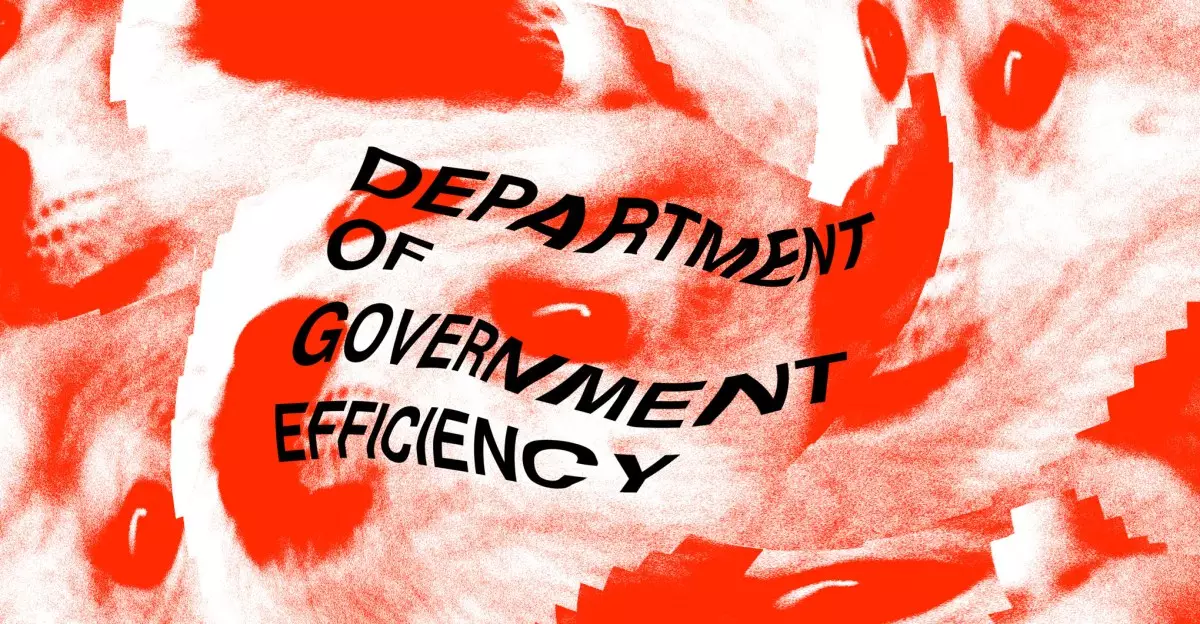The Internal Revenue Service (IRS) is embarking on an ambitious project to develop a so-called “mega API” aimed at making IRS data more accessible to third-party software. This initiative, reported by Wired, is spearheaded by Elon Musk’s Department of Government Efficiency (DOGE) and signals a crucial shift in how taxpayer information may be utilized across various platforms. With the promise of creating a centralized “read center” for IRS systems on the horizon, one must ponder the implications of such a bold endeavor—both the advancements it could bring and the potential hazards lurking beneath the surface.
Technical Feasibility: A Race Against the Clock
At the heart of DOGE’s plan is the aspiration to transition vast amounts of IRS data into a cloud infrastructure, potentially with the help of prominent third-party providers like Palantir. However, the proposed timeline for completion has raised eyebrows within the IRS community. An employee has raised significant concerns, arguing that the ambitious 30-day deadline is unrealistic and may result in operational paralysis for the agency. This raises critical questions: Is DOGE prioritizing speed over technical feasibility? And can an organization lacking experience in tax regulation and government protocol truly navigate a landscape as complicated as the IRS efficiently?
Political Dynamics and Governance Challenges
Political ramifications also hang over this initiative like a dark cloud. A notable voice of dissent comes from Senator Ron Wyden, who has publicly commended the IRS for rebuffing DOGE’s requests for data sharing. This skepticism reflects broader anxieties about governmental overreach, especially considering that the Trump administration touted IRS data as a potential tool for immigration policies and efficiency drives. The speed at which DOGE is attempting to operate raises ethical questions about who truly benefits from this data accessibility: the taxpayers or the policymakers hidden within the shadows?
The Expertise Gap: The Risk of Rushing In
The lack of expertise among the key figures driving this mega API initiative adds another layer of complexity to the already fraught endeavor. Sources have contended that “schematizing” IRS data will take years of dedicated effort, pointing to a clear mismatch between the ambition of DOGE’s operatives—often perceived as inexperienced youth—and the seasoned intricacies of tax data management. This gap not only underscores a potentially reckless approach but also casts doubt on the capacity to handle sensitive information responsibly.
Implications for the Future of Data Management
Ultimately, the tug-of-war between innovation and caution is emblematic of a larger narrative in the digital age—where the allocation and management of data must be balanced with privacy and security considerations. The mega API initiative, while poised to offer unprecedented access to IRS data, compels us to weigh the benefits against the risks of embarking on such an audacious journey without sufficient experience or a solid foundation of governance.
As this project unfolds, stakeholders from all sectors must remain vigilant, holding decision-makers accountable and ensuring that any advancements in technology do not come at the cost of oversight and ethical responsibility. The stakes could not be higher, and the outcome of this megaproject could serve as a blueprint—or a cautionary tale—for future endeavors in data management across government agencies.

